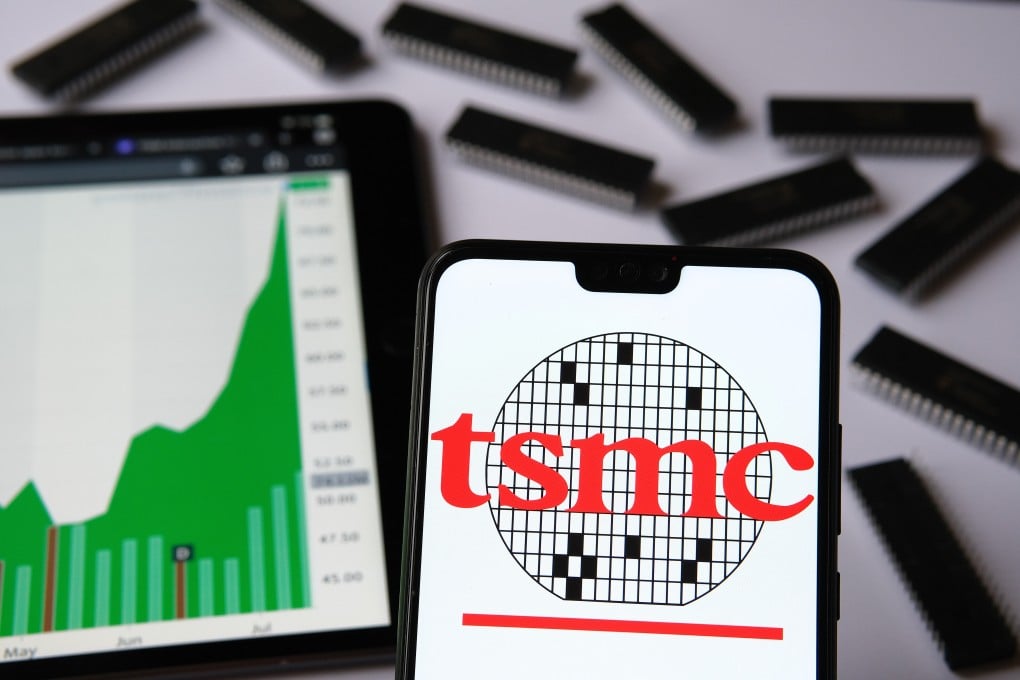Advertisement
Chinese critics express dismay over Taiwan chip maker TSMC’s compliance with Washington’s semiconductor data request
- State-owned media and mainland Chinese social networks are rife with speculation about the potential threat posed by TSMC’s response to the US data request
- TSMC earlier assured that it would withhold confidential customer information ahead of Washington’s November 8 deadline for submitting data
Reading Time:3 minutes
Why you can trust SCMP
20

Beijing has refrained from any direct criticism of Taiwan Semiconductor Manufacturing Co (TSMC) after the world’s largest contract chip maker responded to Washington’s request for supply chain information, but that has not stopped a swirl of speculation about the potential impact of the company’s move on mainland Chinese industries.
The US Department of Commerce’s request for such data was described as “an extortion of confidential information from chip firms” in an article published on Monday by Global Times, a daily tabloid that is an arm of People’s Daily, the Chinese Communist Party’s mouthpiece.
The Beijing Daily, meanwhile, posted on the same day a widely shared article on social media platform WeChat about how the ruling Democratic Progressive Party in Taiwan was too weak to support TSMC in turning down the US request. Beijing’s Taiwan Affairs Office had earlier blamed the island’s government for failing to protect local companies from Washington’s pressure.
Advertisement
TSMC’s decision to comply with the US request has also become one of the hotly debated topics on Chinese microblogging service Weibo, with users discussing the move’s potential threat to national security and mainland China’s own semiconductor ambitions.
The Taiwanese firm, which plans to expand its chip fabrication facility in the eastern city of Nanjing, assured in October that it would “respond to the request without providing customers’ confidential information”, ahead of the November 8 US deadline to submit data related to the ongoing global chip shortage.
Advertisement
South Korean memory chip makers Samsung Electronics and SK Hynix also planned to omit detailed information in their submission because they want to protect trade secrets, according to a Reuters report last Friday that cited two sources briefed on the matter.
Advertisement
Select Voice
Select Speed
1.00x